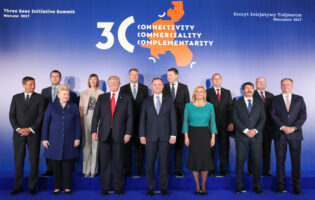German/U.S. Data Transfers: Crucial for Both Economies, Difficult to Regain Trust

Axel Spies
German attorney-at-law (Rechtsanwalt)
Dr. Axel Spies is a German attorney (Rechtsanwalt) in Washington, DC, and co-publisher of the German journals Multi-Media-Recht (MMR) and Zeitschrift für Datenschutz (ZD).
Issue Brief 46
There has been a heated transatlantic debate on cyber issues since Edward Snowden’s release of classified National Security Agency (NSA) documents last year that described various surveillance activities, including the collection of information from Chancellor Angela Merkel’s cell phone. These revelations have strained the relationship between the two countries and have sparked an emotional debate.
The discussion showed that U.S. and German governments and businesses alike are struggling to balance privacy demands with the opportunities and risks associated with the exponential increase in internet users and the ever-expanding flow of data between states. Some reports estimate more than a 30 percent increase in global data traffic every year. Meanwhile, civil society actors have also struggled to clearly articulate the problems and costs associated with this rapid change and its impact on privacy.
This is not just a German-American problem, but both countries are crucial to addressing it—even though they have different privacy regimes and traditions. The workshop participants showed that a lot of trust has been lost (“friends do not spy on friends”), especially in Germany, and that it will take a long process for the United States to regain this trust. Europeans clearly expect “something” for the apparent violation of their privacy, such as the revision of the U.S.-EU Safe Harbor framework. Yet this will not necessarily lead to a transatlantic “grand bargain.”







